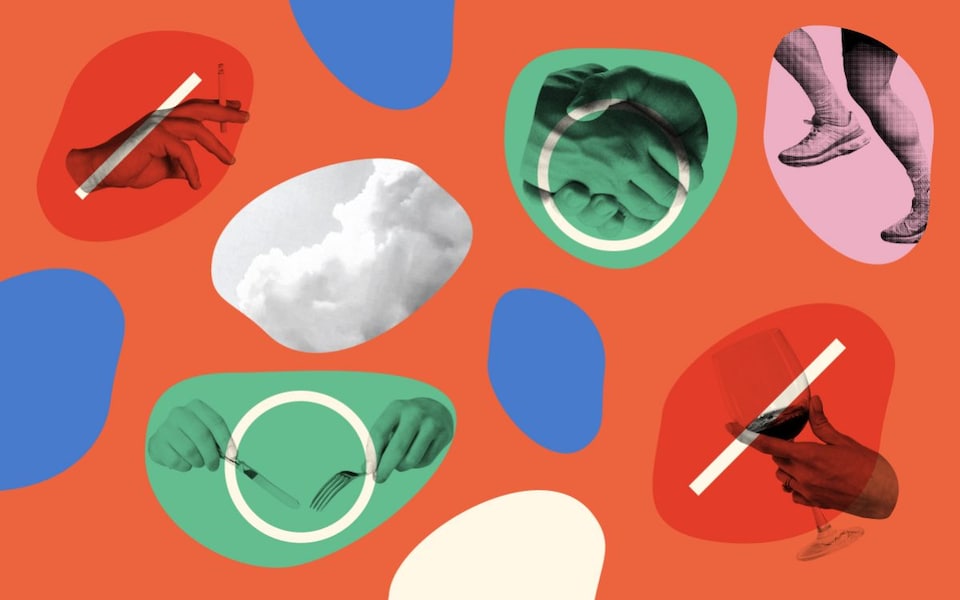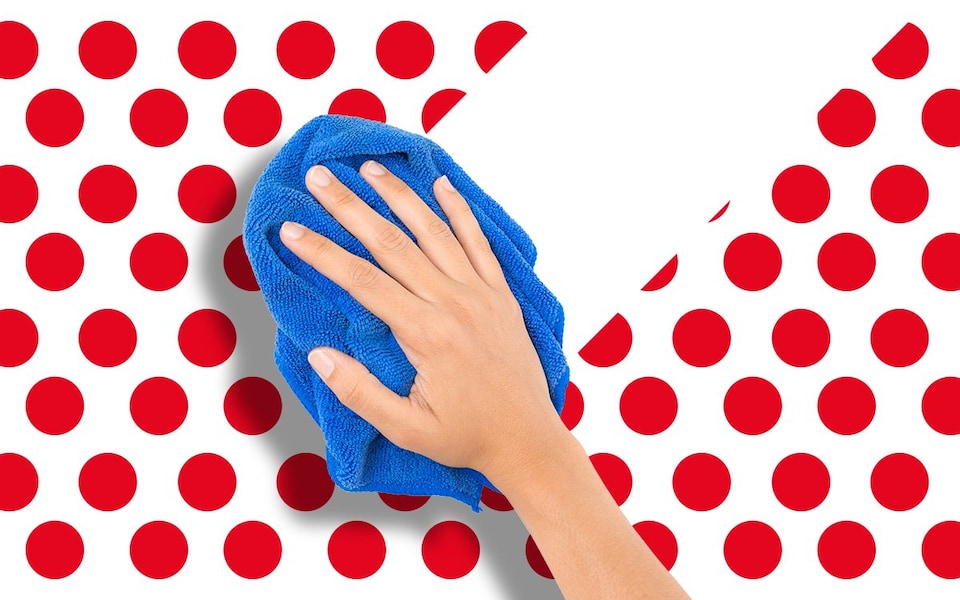
How to deep clean your house – and your clothes – to ward off coronavirus
Is Covid-19 putting you in the mood for an ’emergency clean’? We explain the products you need, and the household objects that need them – from experience and research.
Should you deep-clean your house to fend off new coronavirus? So far, medical advice has focused mostly on the importance of washing our hands – every two hours, with soap and hot water, for 20 seconds each time – which is said to be the most effective way of protecting yourself against the new disease.
But some are now starting to worry about the germs living inside their own homes. Vladimir Todorov, head of London-based deep-cleaning firm Cleaner Cleaner, says concern about Covid-19 has caused a “spike in demand” from middle-class families looking for emergency cleans.
So should you cancel all engagements this weekend to pull on a pair of marigolds (or call someone professional to do it for)? Here’s what the scientists say…
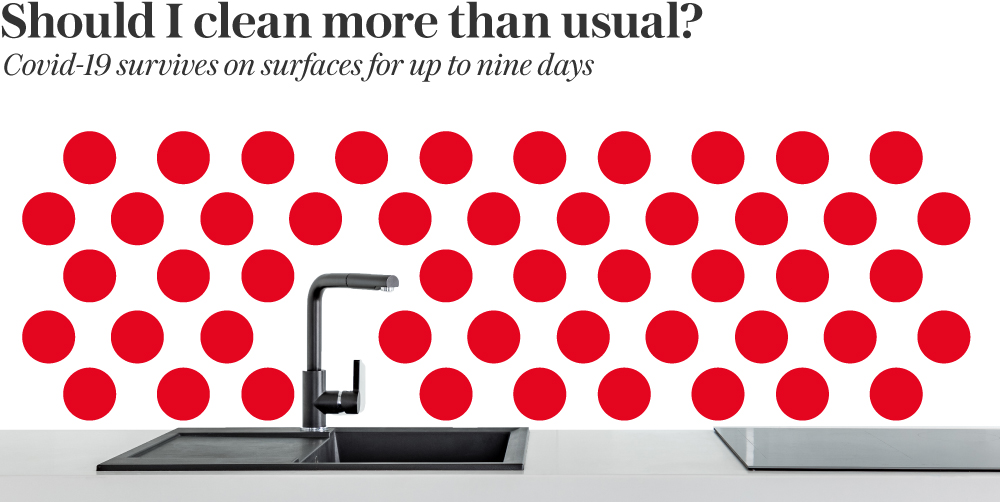
There is still a huge amount that we don’t know about Covid-19, and scientists are split on the value of constantly cleaning your hard surfaces. Researchers at the US Centers for Disease Control and Prevention found that the virus can survive on some inanimate surfaces like bed frames, door handles and kitchen cabinets for up to nine days – suggesting that thorough, regular cleaning is essential.
But Dr Rick Martinello, medical director for infection prevention at the Yale New Haven Health System, thinks the disease is mostly spread through the coughs and sneezes of infected people, and so “wouldn’t recommend anything beyond routine cleaning in a typical household”.
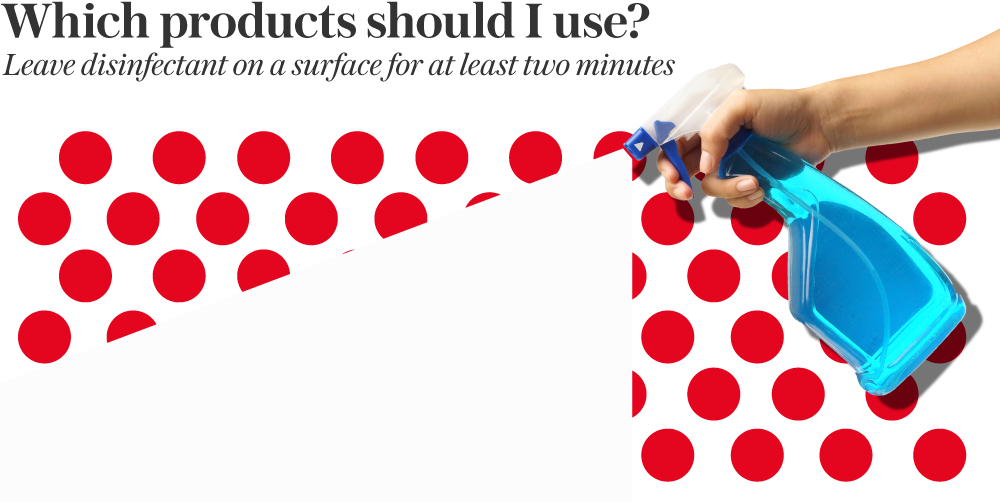
If you are worried, there is no harm in putting a cloth around a little more than usual until the coronavirus panic dies down – especially if you live in a household with a regular footfall of visitors.
Experts are generally sceptical of herbal-based cleaners, which have not proved effective at neutralising Covid-19, according to Dr Robyn Gershon, professor of epidemiology at New York University. Instead, Dr Gershon recommends buying a tub of home-friendly bleach and using it to disinfect commonly handled objects such as door handles, railings and light switches. Experts say that most disinfectant wipes or spray are only effective if the surface is left to stay wet for a few minutes.
But it arguably doesn’t need to be so complicated: Dr Bharat Pankhania, clinical lecturer at the University of Exeter, says: “The simplest of products work best. Liquid soap and a wipe-down are as good as any expensive items.” If you’ve run out of soap or detergent and can’t find any in the shops (which isn’t such a faraway possibility, given the run on hand sanitiser), then you can be creative and use vinegar – but it is dangerous to mix it with bleach, according to a 2010 scientific paper.
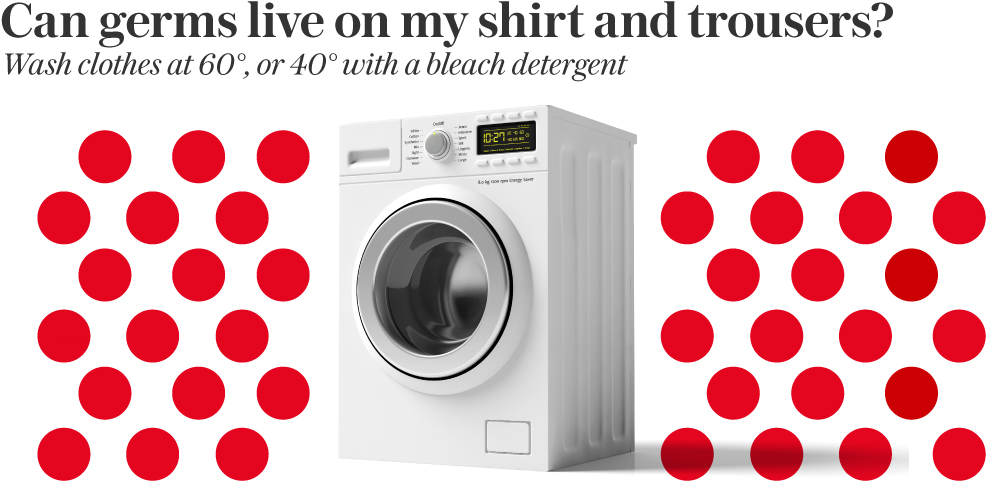
Commonly handled objects such as light switches, television remotes and mobile phones are routinely touched 3.3 times each hour, according to a University of Arizona study of 80 office workers. But how often such items should be cleaned is confusing, with the World Health Organisation suggesting that particles can live on hard surfaces for just a few hours.
But given that we also touch our own faces an average of 3.6 times an hour, these are the objects on which you should focus your cleaning efforts if you want to be safe. Bill Keevil, professor of environmental healthcare at the University of Southampton, says coronavirus can survive for five days on stainless steel, glass, ceramics and plastics, so you should also get into the habit of cleaning your smartphone regularly, as well as other items you might have used at work, such as your office pen.
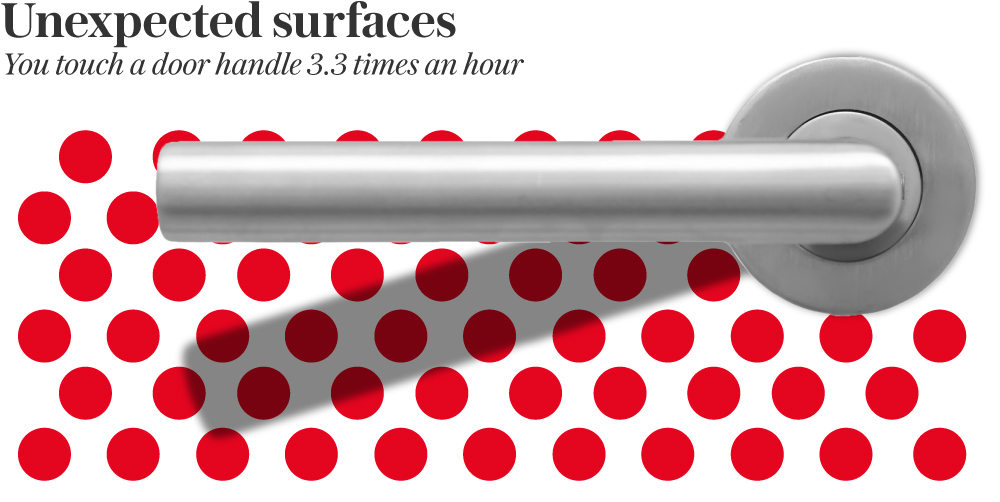
There is currently “no evidence” that coronavirus can be transmitted from fabrics to humans, according to Harvard Medical School, so you don’t need to burn your clothes just yet. That said, the NHS has advised for many years that you should wash underwear, towels and household linen at 60C, or 40C with a bleach-based detergent, if you want to avoid the spread of germs. Prof Keevil says it is a good idea to wash your clothes if somebody has coughed on them, or if they have brushed up against commuters on public transport.
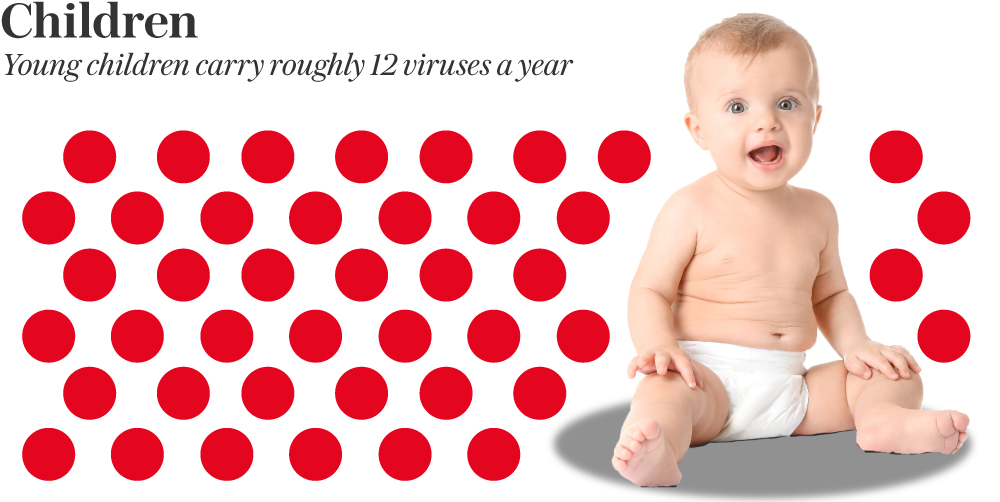
One of the many unknowns of Covid-19 is its affect on young children. That said, small children can act as “mixing bowls” of illness, says Dr Pankhania, carrying 12 viruses a year during the earliest stages of their life, and so are more likely to pass the disease on to their parents or – worse – grandparents. If you live with children, Dr Pankhania recommends a disciplined regime around hand-washing. Try placing a sanitiser at the front door, telling children to clean every time they enter or leave, so it becomes habit-forming.



